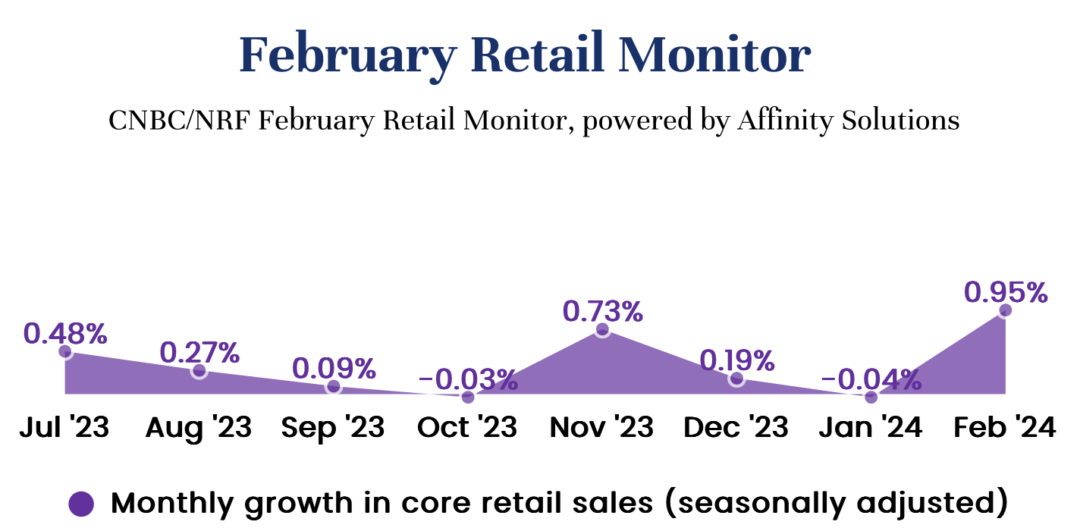U.S. retail sales expanded again in February after flat January
Economy continues to expand in Q1 despite tight credit conditions and still-elevated inflation, NRF says

U.S. retail sales expanded in February after a strong but flat January, according to an analysis of U.S. Census Bureau data released today by the National Retail Federation (NRF).
“Retail sales rebounded in a solid fashion in February, showing the consumer is still spending and pointing to underlying strength in the economy,” NRF Chief Economist Jack Kleinhenz said in a release. “These results indicate that the economy is continuing to expand in the first quarter despite tight credit conditions and still-elevated inflation. Jobs gains, wage increases, and continued GDP growth are supporting household spending. Spending on services remains elevated while spending on goods has softened, but both sectors are still growing.”
The Census Bureau said overall retail sales in February were up 0.6% seasonally adjusted from January and up 1.5% unadjusted year over year. That compared with a 1.1% month-over-month decrease and no year-over-year change in January.
On Tuesday, the CNBC/NRF Retail Monitor, powered by Affinity Solutions, reported that February sales showed continued momentum on the part of consumers. The Retail Monitor found core February retail sales were up 0.95% seasonally adjusted from January and up 6.69% unadjusted year over year. Those numbers softened, however, to gains of 0.27% and 2.99% when adjusted for the leap year effect of the extra day in February this year. That compared with a decrease of 0.04% month over month and an increase of 3.24% year over year in January.
Related Articles
Copyright ©2024. All Rights ReservedDesign, CMS, Hosting & Web Development :: ePublishing